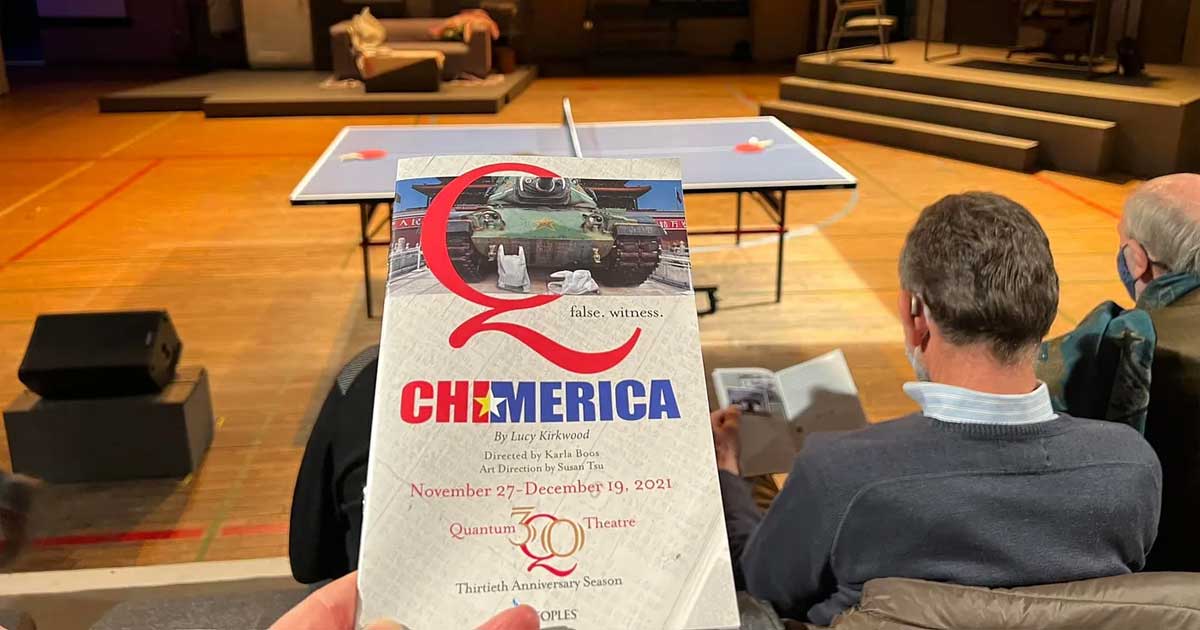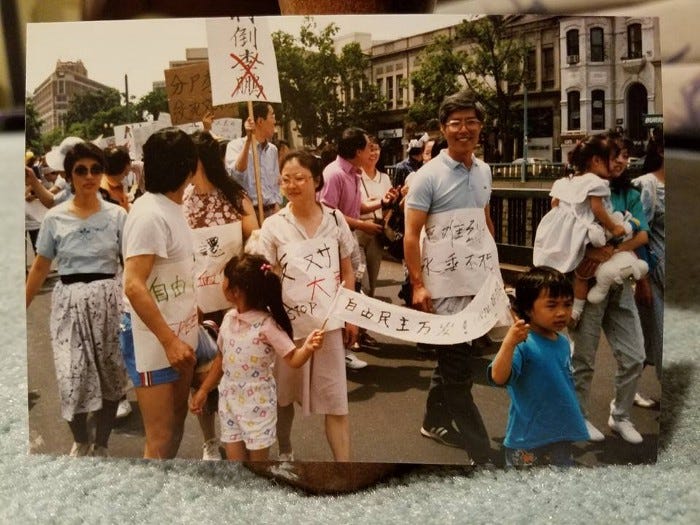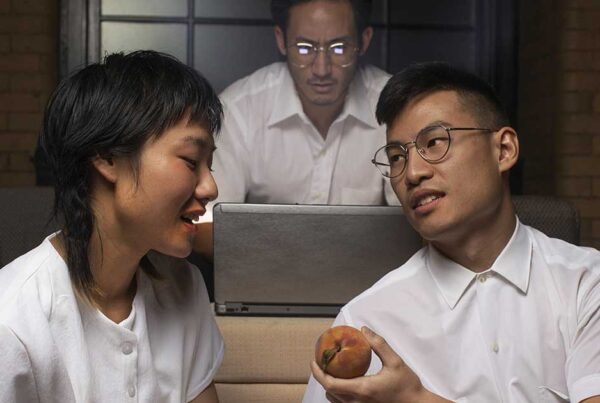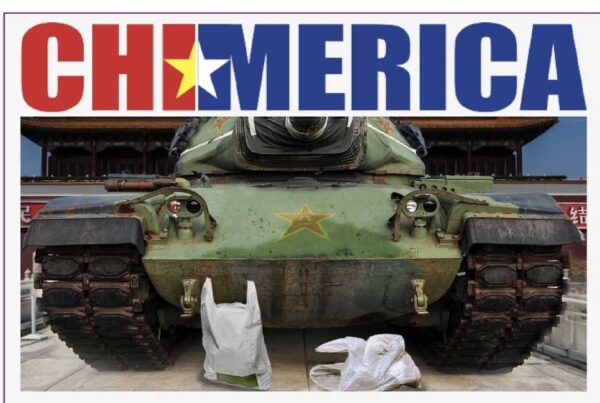
Medium – I anticipate this being a long and meandering review, so let me just summarize the production first in just one word: brave.
It is brave to produce a relatively obscure British play about China and America’s interweaving semi-dysfunctional relationship in modern geopolitics given the current political climate where we’ve just announced our boycott of the Beijing Winter Olympics.
It is brave to stage it in the gymnasium of a historical Pittsburgh YMCA that is now a boutique hotel in gentrified East Liberty (not to be confused with the previous different boutique hotel that recently occupied the same building).
Hell, it’s brave even attempting to do live theater during the pandemic, but what is Quantum Theatre if not brave?
For over thirty years, Quantum has been Pittsburgh’s preeminent pioneering environmental theater company, staging innovative productions in non-traditional spaces ranging from cemeteries to abandoned swimming pools to manmade lakes, while also bringing challenging new works to a mainstream audience. I mean, they were immersive before “immersive theater” was even a clearly defined genre. So yeah, I can’t hide the fact that I’m a fan of their work.
In fact, I won’t even pretend to be neutral in this review. If you want a standard professional theater review, there’s lots of other options from more experienced reviewers.
Instead, I’m going to speak personally about this work because how can I not? The plotlines intersect with my own childhood and family history as inseparably as modern US/China trade relations.
Chimerica mainly deals with the historical, professional, and personal aftermath of the Tiananmen Square Massacre (六四事件) of June 4th, 1989, where Chinese police/military stormed through Tiananmen Square in the center of Beijing, killing and arresting thousands of pro-democracy protesters.

Where was I on June 4th, 1989? Six-year-old Jia was marching with his parents in Washington DC along with other newly-immigrated Chinese-American families in solidarity with our peers. There was nothing abstract about this tragedy, it was as raw and visceral as the Tree of Life shooting still is for us Pittsburghers. Though physically separated by over 10,000 kilometers, we grieved each death as much as we would a neighbor because that’s still what they were to us, the million-some young student protestors who were the same generation as my parents, who but for a handful of chance academic coin-flips, could have easily found themselves marching in Beijing instead of DC, and as likely to have survived.
And 32 years later, would I have expected to find myself, sitting in a semi-abandoned gymnasium on an awkward date, gazing at professional local actors reenacting that tragedy, paying homage to my childhood hero of Tank Man?
No, and especially not in Pittsburgh, which has a quite problematic history with its treatment of Chinese-Americans. While we might now be the model minority you find saturating the local universities, very few locals actually realize that there used to be a historic Chinatown in downtown Pittsburgh at the turn of the century. Over a hundred Chinese-owned businesses existed there before eminent domain seizure for the development of the Boulevard of Allies, “Yellow Peril” racism, and specific Chinese exclusion laws allowed our ethnic enclave to be destroyed to a degree surpassing that of the gentrification of other traditionally ethnic neighborhoods such that currently only one Chinese business still exists there (Chinatown Inn). So yes, while the former Mayor of Pittsburgh might have had a poster of Tank Man in his office when facing off against unscrupulous land developers, he was never willing to even officially acknowledge Pittsburgh’s shameful past, let alone make any amends or reparations.
So imagine my surprise now that not only do we have a historically accurate retelling of the Tiananmen Square Massacre in a mainstream production, but it also focuses on one of my childhood heroes, the enigmatic symbol of the lone non-violent protestor facing seemingly insurmountable odds, the still unidentified Chinese man who iconically stood in front of a column of tanks leaving Tiananmen Square.




